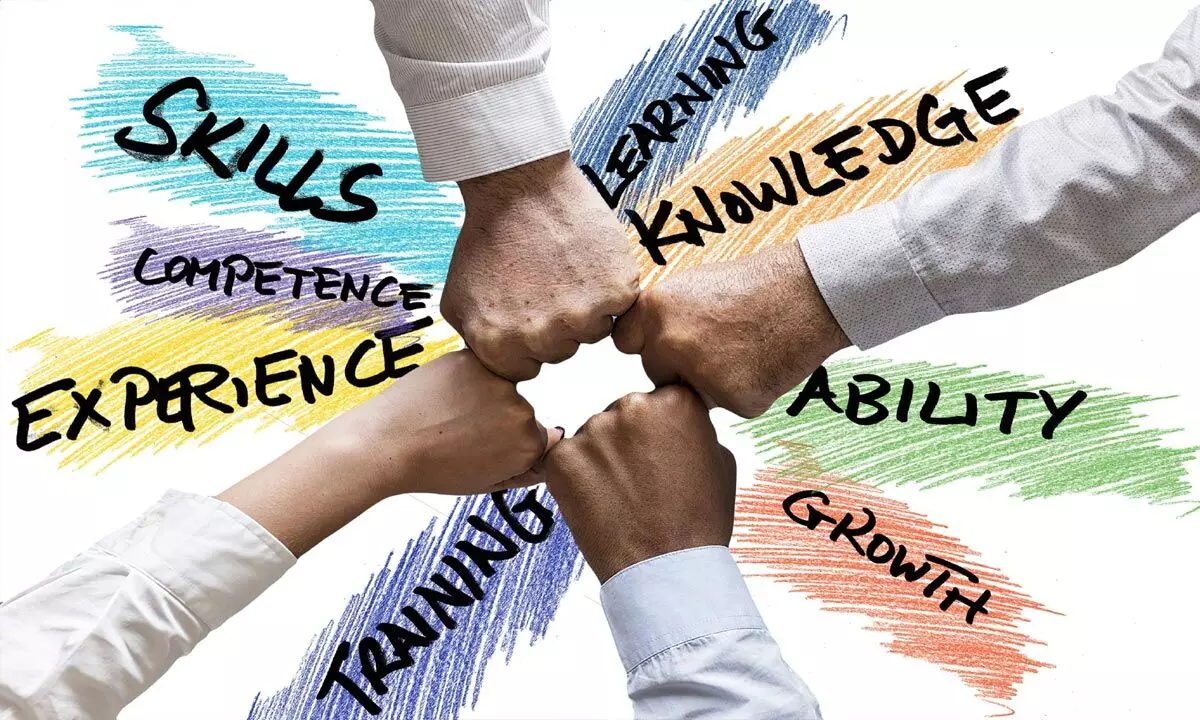Empower workforce: Attitude & skill-based talent acquisition for success

The job market in India has undergone drastic changes over the last few years.
The job market in India has undergone drastic changes over the last few years. Each decade brings new insights into human resource management, as the array of knowledge, skills, and competencies continues to evolve and set higher standards. And this decade is about the ‘Hire for Attitude, Train for Skills’, a strategic approach that most organizations are adopting to thrive in today’s competitive business landscape.
The power of attitude
A positive attitude can foster a sense of belonging, collaboration, and cohesion within a company. Hiring individuals with the right attitude enhances teamwork, promotes innovation, and contributes to a healthy work environment. Such people are more likely to adapt to changing circumstances and bounce back from setbacks. Their resilience helps organizations navigate challenges and seize new opportunities, ultimately driving growth and success.
To identify such talents, companies should incorporate behavioural interviews into the hiring process to gather valuable insights into a candidate's attitude. For instance, ask scenario-based questions to gauge how individuals respond to challenges, work under pressure, and interact with colleagues. Likewise, it’s essential to do reference checks before bringing people on board. Doing so will shed light on their attitude, work ethic, and overall performance. Speak with their former managers or colleagues to validate their claims and get a deeper understanding of their attitude towards work and collaboration.
The next step after hiring is to invest in employee training and development. Conduct comprehensive on boarding programmes to bridge any skill gaps and ensure new hires are equipped with the necessary knowledge and tools to excel in their roles. Companies must also establish a culture of continuous learning to maximize employee potential. Provide them with training opportunities, mentorship programs, and professional development initiatives. Not only will this enhance their skills but also improve employee satisfaction and retention.
Leveraging tools in talent acquisition
Applicant Tracking Systems have become integral tools for talent acquisition. These systems streamline the recruitment process by organizing candidate data, automating applicant screening, and facilitating efficient communication between recruiters and hiring managers. Similarly, TRM software helps companies build and maintain relationships with potential candidates, even before specific roles become available. It enables organizations to nurture talent pipelines, engage with passive candidates, and create a talent community for future hiring needs.
Competency mapping for effective hiring
Competency mapping involves defining the essential skills, knowledge, and behaviours required for specific roles within an organization. By mapping these competencies, recruiters can align candidate assessments with the job requirements and identify the most suitable candidates. Recruiters can employ various assessment methods, such as behavioural interviews, psychometric tests, and assessment centres, to evaluate a candidate's competencies. These assessments provide valuable insights into a candidate's potential to succeed in the role and contribute to the organization's growth.
Functional awareness and relevant experience
While hiring for attitude and potential, functional awareness remains crucial. Candidates must possess a fundamental understanding of the role and industry-specific knowledge. Functional awareness ensures that individuals can contribute effectively and adapt quickly to their assigned responsibilities.
Although skills can be developed, relevant experience plays a vital role in certain positions. Recruiting candidates with prior experience in similar roles or industries can bring valuable insights, expertise, and a shorter learning curve to the organization.
Wrapping up
Talent acquisition has truly undergone a significant shift, underlining the importance of hiring candidates based on attitude and potential rather than solely focusing on skills and experience. By prioritizing attitude, cultural fit, and future potential, organizations can build a team of motivated individuals who align with their values and are willing to learn and grow.
Leveraging tools, such as applicant tracking systems and talent relationship management software, along with competency mapping, functional awareness, and relevant experience, ensures a comprehensive approach to talent acquisition. Embracing this paradigm shift unlocks the key to successful recruitment, enabling companies to thrive in the competitive job market and drive sustainable growth.
(The author is HR Head, Sohan Lal Commodity Management (SLCM))














